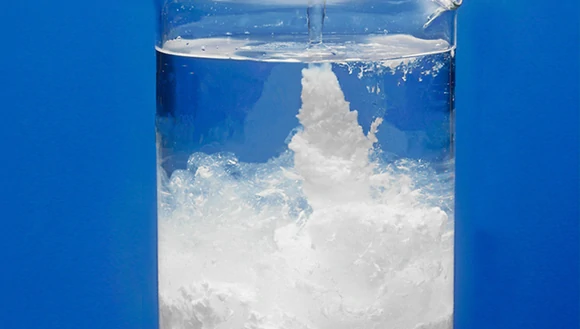Sodium chlorite is used to generate chlorine dioxide. It has several applications in power industrial settings, particularly in water treatment processes, such as cooling water treatment (biofouling control, legionella control), wastewater treatment (disinfection, odor control, and removal of Hydrogen Sulfide), flue gas treatment (Nitrogen Oxide (NOx) removal, and Cyanide removal).
Sodium chlorite and chlorine dioxide are critical to the power industry’s water treatment processes, ensuring that cooling and boiler systems operate efficiently, safely, and within environmental compliance standards. Chlorine dioxide’s strong oxidizing properties and broad-spectrum antimicrobial activity make it a valuable tool for maintaining clean, safe, and efficient power plant operations.
Sodium chlorite is essential in recirculating cooling towers as it's the stable source for generating chlorine dioxide. ClO2 is a potent oxidizing biocide, effectively controls microbial growth, prevents biofouling, and ensures the efficient and safe operation, longevity of cooling systems. The generation of chlorine dioxide from sodium chlorite can be precisely controlled, allowing for the dosing to be tailored to the specific needs of the cooling tower's water treatment system.
Biofilm Control: Recirculating cooling towers are prone to the formation of biofilm, which can harbor bacteria, algae, and other microorganisms that contribute to foul odors and equipment degradation. ClO2 can penetrate and disrupt existing biofilms more effectively than chlorine, which is crucial in recirculating cooling towers where water is continuously reused.
Effective Biocide: Chlorine dioxide, produced from sodium chlorite, is highly effective in penetrating biofilms and eliminating the bacteria within. It acts against a wide range of microorganisms, including bacteria, algae, and fungi, minimizing chemical usage and environmental impact.


Legionella Control: Chlorine dioxide is known for its effectiveness against Legionella pneumophila, the bacterium responsible for Legionnaires' disease. Cooling towers are a known risk area for the proliferation of Legionella due to the warm, moist environment that is ideal for bacterial growth. Regular treatment with chlorine dioxide helps to mitigate this risk.
Reduced Corrosion: By effectively controlling microbial growth, chlorine dioxide helps to minimize microbially induced corrosion, which can damage metal surfaces and structural components of the cooling tower.
Improved Operational Efficiency: By preventing scaling, biofouling, and corrosion, the efficiency of heat transfer in the cooling tower is maintained, which is essential for the optimal performance of the power plant. Effective water treatment reduces the need for mechanical cleaning and other maintenance activities, thereby reducing overall operational costs and downtime.
Dosage and Application: Proper dosing and application of sodium chlorite are critical for achieving effective odor and microbial control in recirculating cooling towers. The appropriate dosage will depend on factors such as water volume, system design, temperature, and the level of microbial activity.
